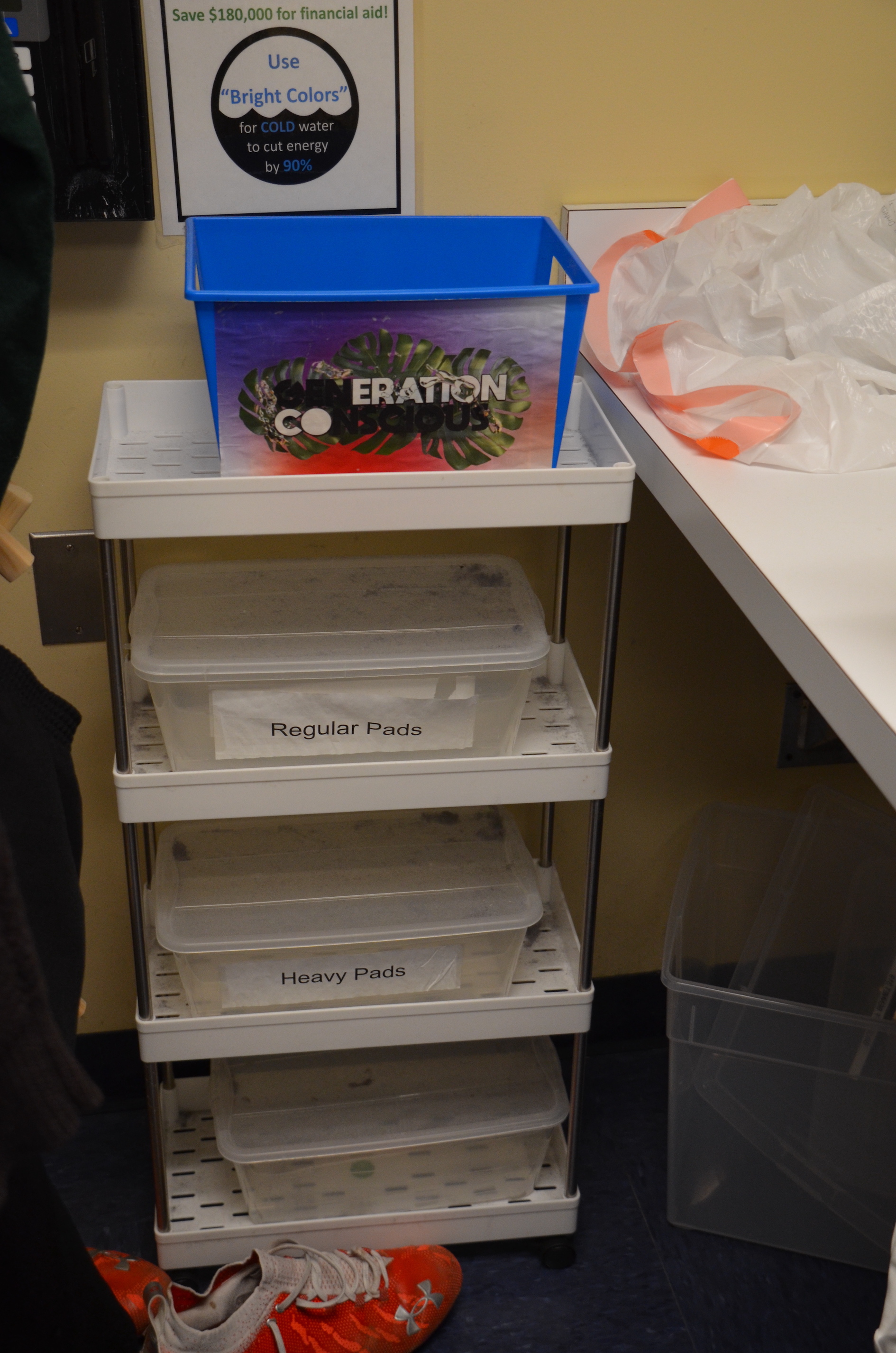
Physical Plant and the Wesleyan Student Assembly (WSA) Student Life Committee (SLC) have launched an initiative to install menstrual bins in all traditional residential facilities—Foss Hill Units 1–10, Bennet Hall, Clark Hall, and Butterfields A, B, and C—on campus. According to Associate Director of Facilities Management Jeffrey Sweet, the Physical Plant team has installed menstrual bins in two-thirds of men’s, women’s, and gender-neutral bathrooms in those residential facilities so far.
WSA Senator and SLC Vice Chair Hannah McKiernan ’24, who leads this initiative, hope that all bins will be installed by the end of the 2021–2022 academic year.
“The ultimate goal for this effort is to provide access to a way for users to discard their personal hygiene products conveniently as well as privately in each bathroom,” Sweet wrote in an email to the Argus.
For students whose residences’ bathrooms do not yet have bins in every stall, a bin can typically be found in the stall farthest from the entrance. At this point, Physical Plant has acquired all of the bins and is currently working to install the rest of them.
“The actual bins are on hand but there has been an issue with installation as Physical Plant is down labor due to early retirements as well as long term absences in the Building Trades division,” Sweet wrote. “The staff they do have are working on Life/Safety and Security issues as their main priority and other work orders as time permits.”
Following the completion of the initial plan, Sweet hopes to continue this project in the remaining residential buildings that do not have single-use bathrooms with trash cans in the future.
“The expectation is that we continue to expand this to include all residential facilities for which we service on a daily basis,” Sweet wrote in an email to The Argus. “This includes all Program Houses. We will also continue to meet with [University Residential Life Committee] and WSA to discuss this issue to determine other opportunities.”
Initially, Physical Plant did not know which bathrooms had bins in them and which didn’t, which delayed the project. McKiernan and WSA Senator Ruby Clarke ’24 took a tour through all residential bathrooms to record which needed new bins.
Maintenance work for Physical Plant has increased substantially since the onset of the pandemic and the team has faced staffing shortages, meaning that the menstrual bin project took a backseat for some time.
“Covid did affect the start date as our staff was supporting many of the functions associated with keeping the campus going during the 2020/2021 Academic Year,” Sweet wrote. “Along with that, Physical Plant did have a large portion of the Building Trades division affected by early retirements during the same period of time. The reduction of staff along with the challenges of keeping the campus functioning at the height of Covid restrictions did hamper these efforts.”
While the project has been ongoing for a few years, menstrual bin installation is a priority for both the WSA and Physical Plant, as having bins in all bathrooms makes them more accessible to all students, regardless of gender.
McKiernan expressed that she feels this project is an important step in destigmatizing menstruation on campus.
“There shouldn’t be as much shame around menstruation as there is,” McKiernan said. “There also just shouldn’t be as much energy around menstruation as there is. People have periods and that is fine. We should be handling it and treating it less like it’s a secret or something that they need to put extra energy into handling.”
Clarke added that she hopes this project will help align the physical structure of the University with the community’s values and ideals.
“When you’re in Hewitt or pretty much any of the Foss Hill dorms, for all the bathrooms, you are asked, ‘Do you want it to be a gender neutral bathroom or not?’…at the beginning of the year,” Clarke said. “But the thing is, it’s not structurally built to have people say, ‘No, I actually want it to be the other one.’ It could be one thing to go here and feel really excited to be included and then you go into a space and it says it’s going to include you, and then it structurally doesn’t. That’s super fucking disappointing and it’s also not a super difficult thing to mediate.”
Sweet hopes that having bins installed in all bathrooms will also discourage students from flushing menstrual products and paper towels down toilets, one of the highest causes of flooded toilets in residential buildings.
“Another positive result of having these bins available to users is removing the items from the sanitary systems on campus,” Sweet wrote. “There is a problem on campus with blocked sanitary lines due to items such as personal wipes, paper towels and other items along with personal hygiene products being flushed down the toilets. It is very important for students to know that the only thing that should be flushed down the toilet is toilet paper.”
Clarke emphasized the urgency of this particular issue, as flooded toilets cause problems for both residents and custodial workers.
“Sometimes when a bathroom or a toilet does overflow, like last year it got into some people’s rooms in the Butts, and a lot of that is caused because it’s not an individual’s fault, but there isn’t a proper place to put them,” Clarke said.
Hallie Sternberg can be reached at hsternberg@wesleyan.edu or on Twitter @halsternberg.



Leave a Reply